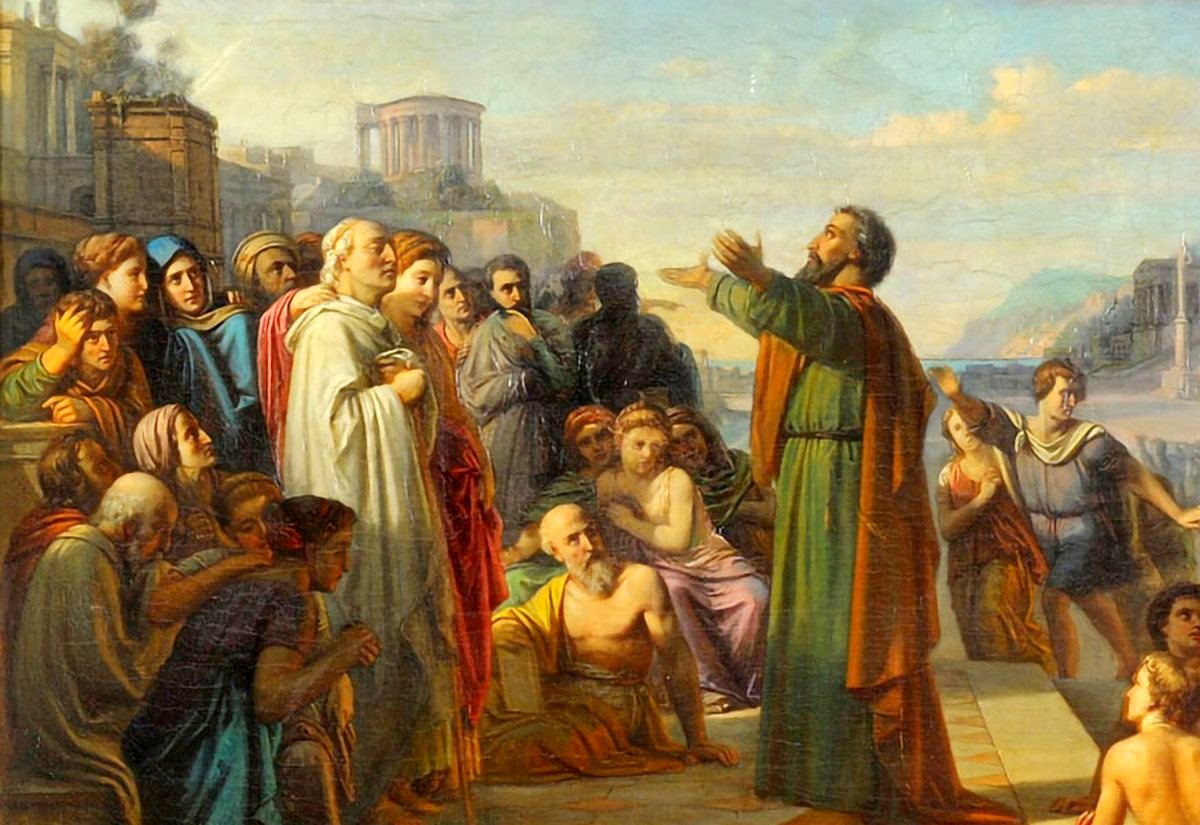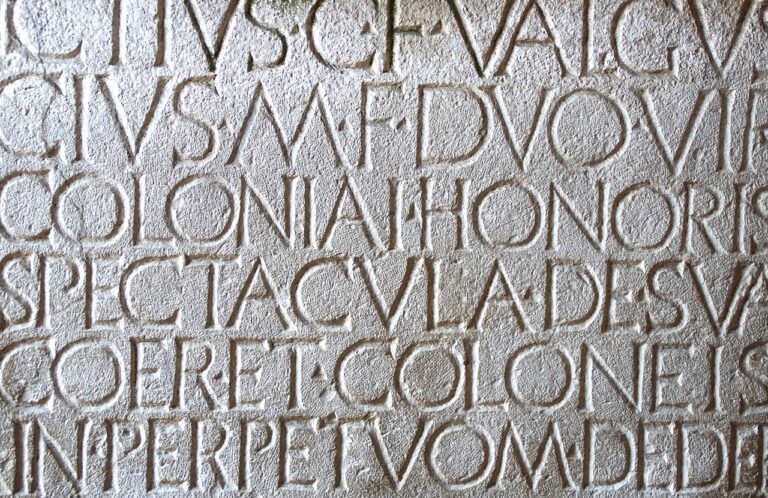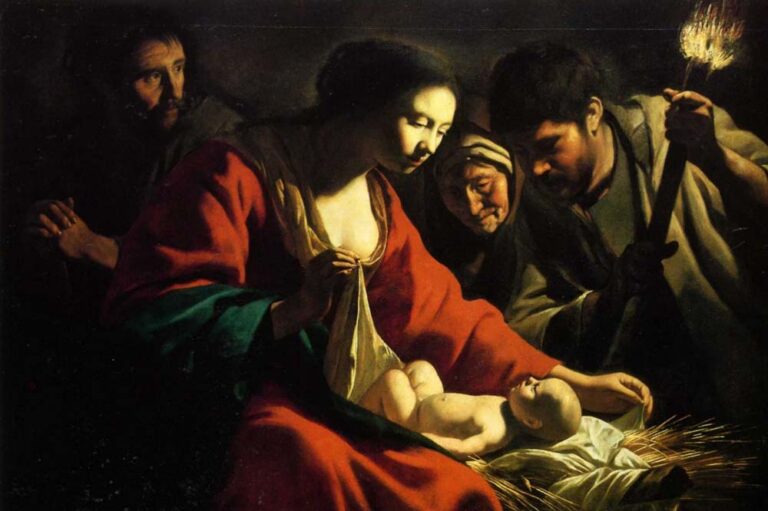
As the college’s Steering Committee (now Board of Directors) considered what to name the institution, we looked to the past for an institution that matched our goals. The University of Aberdeen in Scotland is an institution that was founded in 1495 to prepare students for medicine, canon law, the arts, and theology — disciplines that we strongly want to celebrate. The University of Aberdeen remains a stalwart institution where many excellent, conservative Christian scholars, pastors, and theologians emerge.
Similar Posts

Integrating Faith in the Academy: Three Core Components
By Dr. Ryan F. Smith All problems of modern academic liberalism are, at their root, theological. The fundamental error in secular academia is the denial of the Triune God, coupled with the intellectual and moral void that spirals out from this rejection. In contrast, spiritually faithful colleges – those which are liberal (“free”) in the…

Why Study Paradise Lost?
The power of Paradise Lost is not only in presenting Christian truth in a classical form, but also in reshaping that form according to Christian truth. It therefore represents a kind of conceptual prototype for Classical Christian Education as a whole, which seeks to assimilate the best of classical learning within its Christian commitment.

Milton, Meet Handel
Dr. Ryan F. Smith Classical music can help students learn classical texts imaginatively. Music enlivens poetry in magical ways. When great classical composers and poets collaborate, the results can be exquisite. Such was the case when the eminent eighteenth-century composer G. F. Handel composed a now unfamiliar oratorio using the poetry of John Milton, entitled…

How to Read a Book…According to Milton
by Dr. Cole Jeffrey Guest contributor Milton’s lesser known political tracts reveal his philosophy of reading During the 1640s, England was divided by a bitter civil war. Two political factions, the Royalists and the Parliamentarians, fought for control of the government. The Royalists believed power should be controlled by the monarchy, while the Parliamentarians believed…

On Teaching and Learning Classical Languages: A Reformation of Reason and Method
Mr. Carter Ehnis, M.A. Last year, I began rereading the works of C.S. Lewis. As I worked through Surprised by Joy, I came upon the oft-quoted passage where Lewis tells of his first encounter with Homeric Greek: We opened our Books at Iliad, Book I. Without a word of introduction Knock read aloud the first…

The Immutable Son and His Incarnation
Rev. Matt MarinoReprinted with permission from ReformedClassicalist.com The word “incarnation” is a construct of Latin words for “on” (in) and “flesh” (caro). Most immediately, the English word derives from the older French word incarnacion. In the Greek of the central passage in John 1:14, it is just the common word that we see Paul always…

Integrating Faith in the Academy: Three Core Components
By Dr. Ryan F. Smith All problems of modern academic liberalism are, at their root, theological. The fundamental error in secular academia is the denial of the Triune God, coupled with the intellectual and moral void that spirals out from this rejection. In contrast, spiritually faithful colleges – those which are liberal (“free”) in the…

Why Study Paradise Lost?
The power of Paradise Lost is not only in presenting Christian truth in a classical form, but also in reshaping that form according to Christian truth. It therefore represents a kind of conceptual prototype for Classical Christian Education as a whole, which seeks to assimilate the best of classical learning within its Christian commitment.

Milton, Meet Handel
Dr. Ryan F. Smith Classical music can help students learn classical texts imaginatively. Music enlivens poetry in magical ways. When great classical composers and poets collaborate, the results can be exquisite. Such was the case when the eminent eighteenth-century composer G. F. Handel composed a now unfamiliar oratorio using the poetry of John Milton, entitled…

How to Read a Book…According to Milton
by Dr. Cole Jeffrey Guest contributor Milton’s lesser known political tracts reveal his philosophy of reading During the 1640s, England was divided by a bitter civil war. Two political factions, the Royalists and the Parliamentarians, fought for control of the government. The Royalists believed power should be controlled by the monarchy, while the Parliamentarians believed…

On Teaching and Learning Classical Languages: A Reformation of Reason and Method
Mr. Carter Ehnis, M.A. Last year, I began rereading the works of C.S. Lewis. As I worked through Surprised by Joy, I came upon the oft-quoted passage where Lewis tells of his first encounter with Homeric Greek: We opened our Books at Iliad, Book I. Without a word of introduction Knock read aloud the first…

The Immutable Son and His Incarnation
Rev. Matt MarinoReprinted with permission from ReformedClassicalist.com The word “incarnation” is a construct of Latin words for “on” (in) and “flesh” (caro). Most immediately, the English word derives from the older French word incarnacion. In the Greek of the central passage in John 1:14, it is just the common word that we see Paul always…

Integrating Faith in the Academy: Three Core Components
By Dr. Ryan F. Smith All problems of modern academic liberalism are, at their root, theological. The fundamental error in secular academia is the denial of the Triune God, coupled with the intellectual and moral void that spirals out from this rejection. In contrast, spiritually faithful colleges – those which are liberal (“free”) in the…

Why Study Paradise Lost?
The power of Paradise Lost is not only in presenting Christian truth in a classical form, but also in reshaping that form according to Christian truth. It therefore represents a kind of conceptual prototype for Classical Christian Education as a whole, which seeks to assimilate the best of classical learning within its Christian commitment.

Milton, Meet Handel
Dr. Ryan F. Smith Classical music can help students learn classical texts imaginatively. Music enlivens poetry in magical ways. When great classical composers and poets collaborate, the results can be exquisite. Such was the case when the eminent eighteenth-century composer G. F. Handel composed a now unfamiliar oratorio using the poetry of John Milton, entitled…

How to Read a Book…According to Milton
by Dr. Cole Jeffrey Guest contributor Milton’s lesser known political tracts reveal his philosophy of reading During the 1640s, England was divided by a bitter civil war. Two political factions, the Royalists and the Parliamentarians, fought for control of the government. The Royalists believed power should be controlled by the monarchy, while the Parliamentarians believed…

On Teaching and Learning Classical Languages: A Reformation of Reason and Method
Mr. Carter Ehnis, M.A. Last year, I began rereading the works of C.S. Lewis. As I worked through Surprised by Joy, I came upon the oft-quoted passage where Lewis tells of his first encounter with Homeric Greek: We opened our Books at Iliad, Book I. Without a word of introduction Knock read aloud the first…

The Immutable Son and His Incarnation
Rev. Matt MarinoReprinted with permission from ReformedClassicalist.com The word “incarnation” is a construct of Latin words for “on” (in) and “flesh” (caro). Most immediately, the English word derives from the older French word incarnacion. In the Greek of the central passage in John 1:14, it is just the common word that we see Paul always…
